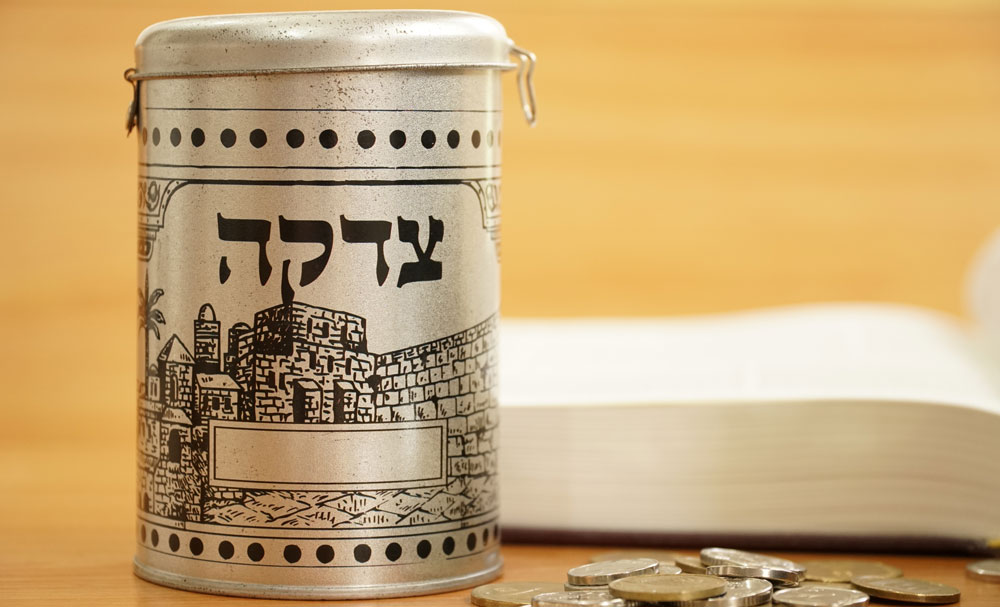Community Blog “Grinding and Sweetening”: Reimagining Philanthropic Giving through a Jewish Lens

This past spring, I had the opportunity to participate in Hebrew College’s Open Circle Jewish Learning Social Action class, “Transformative Philanthropy: Grounding in Jewish Tradition to Give for the Long Haul”. Led by Molly Schulman, the class explored concepts like restorative economies, reparations, and wealth redistribution, and analyzed how they relate to Jewish principles of giving and justice. The following is a reflection on my experience as a student in the class.
It’s beautiful how Jewish time is grounded in cycles: the cycles of the moon, the cycles of the harvest. There are times, as the Book of Ecclesiastes tells us, to live and to die, to wax and to wane, to plant and to harvest, to mourn and to rejoice, to give and to receive. But the idea of passively waiting for the cycles of life to impact me is something I really struggle with, especially when it comes to making the world a more equitable and just place.
A passage from Bereishit Rabbah tells us: “All that was created during the six days of creation requires improvement…the mustard seed needs to be sweetened and the lupine needs to be sweetened, the wheat needs to be ground, and even a person needs improvement.” (11:6) Note the words used to describe change: sweeten, ground, improvement. “Improvement” is pretty universally understood; it means to better ourselves, to better our community. But sweeten and ground describe two distinct processes. When we’re grinding wheat, or “grinding” in the gym, we’re applying pressure, putting in work and expending lots of energy. It’s a very active type of change-making. Sweetening, on the other hand, isn’t very active. Flowers soak up the sun and get sweeter and brighter, while mustard seed is mixed with spices and vinegar to sweeten and mellow in flavor.
This passage illustrates that improvement—either for ourselves or our communities—requires both grinding and sweetening; change-making requires time for both active, energetic work and open reflection. Finding that balance can be difficult, especially if, like me, you often default to action. I can become overwhelmed while simultaneously figuring out what I need, what my community needs, and how to meet those needs. I found the Transformative Philanthropy class so helpful because Molly and my classmates provided a framework of Jewish values through which I could grapple with how I want to devote my time, energy and money to the different spaces in my life. We opened the course focusing inward with sharing how we each related to money, and began to unpack the Anti Semitic tropes that surround Jews and money. This work felt like sweetening to me: more introspective, thoughtful and observant. We then moved to focus outward: in one session, we discussed the Rambam’s (Maimonides’) teachings on how a community cares for its most vulnerable and marginalized, and how to find Jewish values in the concept of a solidarity economy. This part of class felt more action-oriented: how can we apply these learnings to how we engage with our own economies and communities?
Striking the balance between grinding and sweetening also appears in my own work around philanthropy. Deep, long-lasting change requires both active work and more passive periods. Some donors prefer to invest in quick, rapid response needs, but often at the expense of building capacity for long-term movement work: focusing on grinding and not on sweetening. If the work of the New Georgia Project and other community organizations this past election cycle have emphasized anything, it is just how important it is to invest in the long-term work. Practices like general operating funding (giving organizations funding that is not tied to a particular project or expense), participatory grant-making (which puts trust in the grantees as the ones best positioned to direct funding), and multi-year grant-making are examples of how funders can create space for both sweetening and grinding. This is what it means to “give for the long haul:” engaging in social change and capacity-building across a movement over a sustained period of time, so that not only does your giving fundamentally impact the success of that movement, but your engagement with a movement fundamentally impacts you. My time in the class emphasized that when we ground our giving in our values (specifically, our Jewish values), it is made all the more powerful.
The Transformative Philanthropy class engaged us in conversations around these types of paradigm-shifting initiatives that have been ongoing for several years, and are only growing more mainstream—concepts like fast grants and the nonprofit starvation cycle along with the essential work of organizations like the Decolonizing Wealth Project and the Community-Centric Fundraising movement. The class reinforced my own belief in the necessity to reimagine philanthropic models that listen to, learn from, and empower the very communities they aim to serve.
But my time in Transformative Philanthropy taught me that not only are these practices more equitable and community-oriented, they feel inherently more Jewish as well. As we usher in a new year, the Jewish cycles of time remind us that there is value in both the moments of sweetening and grinding; sustained improvement of ourselves and our communities requires both of those moments, and so too must it be when it comes to the world of philanthropic giving.
I am deeply grateful to Hebrew College and Molly Schulman for creating this class as not only a space for reflection and sweetening, but also a launching pad for action.

Learn more about Hebrew College’s Open Circle Jewish Learning classes online or email us at opencirclejewishlearning@hebrewcollege.edu.

